IT is just a few years since The Turf Cub morphed into its new name and identity, the IHRB - The Irish Horseracing Regulatory Board - which is quite a mouthful. Chairman of the IHRB, Martin O’Donnell, is roughly halfway through his term of office and he is only the second to hold the new title, having taken over from Harry McCalmont.
Only in his mid fifties, Martin is possibly the youngest incumbent of the top job in Irish racing in living memory. He comes from a family steeped in public service with farming hunting and racing throw in. His great grandfather also Martin was a land leaguer and shared a cell with Charles Stewart Parnell.
His uncle Tom was the Minister for the Gaeltacht and the long serving TD for Limerick East. His great uncle, Dick O’Connell, was very prominent in the War of Independence and became a Cumann Na nGaedheal (Fine Gael) TD and went on to have a very successful career as a racehorse trainer, winning the Kerry National and the Conyngham Cup back in the 1950s.
Young Martin was brought up in Dun Laoghaire but his father, an inveterate hunting man and steeped in his Limerick roots, was master of the Bray Harriers.
Martin vividly recalls those early days. “When Frank became Master of the Bray Harriers I was working with him in our family property advisory practice and had recently became a father for the first time. The fact is I started to step back from hunting at that time to concentrate on my career and my young family. As we were self-employed and I felt the responsibility of a young family, I could not afford to get a serious fall.
“I continued my interest with the sport by following the hunt and assisting Frank in his duties as a master where possible and also at that time, I started breeding with both a National Hunt mare and a flat mare and going racing as often as I could. My late mother Biddy was a stalwart supporter of the Bray Harriers, rarely missing a meet, and after many years of not riding, my sister Alicia took up hunting around this time and enjoyed the sport for the duration of Frank’s term as master and beyond.”

Martin O'Donnell is his hunting days, enjoying a day with the Bray Harriers
Frank, still hale and hearty in his eighties, hunted right up in to his late seventies and Martin remembers him riding out for Jim Bolger when Jim trained in the Phoenix Park. As young Martin came of age, it was decided to invest in a race horse.
“My favourite memory from my time riding is hunting a thoroughbred for over 12 years whose name was Ballinlee Lad. Ballinlee was purchased from race horse trainer Austin Leahy out of a field with the goal of being a hunter and a possible point-to-point ride for me when I was old enough to get a licence. Ballinlee Lad was a fabulous 17hh horse with a bit of style about him and he was the best jumper of a fence I have ever sat on.
“He was also an extremely careful jumper of banks which made him a joy to hunt. After his first season of me hunting him, he won his maiden point-to-point under the late John Durkan at Punchestown and went on to win the Ladies Cup and a winners-of-one hunter chase at Kilbeggan in the same season.
“Unfortunately, from a racing point of view, he injured himself out on grass the following summer and was never again the same racehorse. However, that meant I benefited from being able to hunt him for the next 10 seasons before his retirement.
“I also really enjoyed taking part in hunter trials around the country and was part of the first Bray Harriers team entered in the Hunt Chase at the Dublin Horse Show in 2000. We had a fantastic few years training our own horses mainly while I was attending UCD nearby. We had a lot of fun with family and friends at this time and had our fair share of winners, including a number of wins in the local members’ race which was better known in the Bray Hunt as the ‘Real Gold Cup’.”

Martin O'Donnell competing in the Hunt Chase at the RDS with the Bray Harriers in 2000
UCD Racing Club
Martin now works for CBRE, the global property company where he is Head of Business Rates and Compulsory Purchase.
It is fair to say that Martin did not come from your typical Turf Club background so I asked him how he became involved. “I believe it all started as a result of my involvement in the Racing Club in UCD of which I was Auditor in final year. I was very involved in the organisation of a number of seminars on the Racing Industry, and Michael Keogh, then Registrar of the Irish National Hunt Steeplechase Committee (INHSC), was a guest speaker on at least one occasion.
“I subsequently kept in touch with Michael and one day I received a call to ask me if I would be interested in taking part in a stewarding training programme as there was a push on to enrol new younger stewards at the time. I completed the stewards’ training programme and was invited to join the INHSC. I subsequently was invited to join the Turf Club when I became Chairman of the Stewards at Bellewstown racecourse.
“Following my membership of the two clubs, I have been a member of the Referrals, Appeals, Finance and Point-To-Point committees. I was subsequently elected by the membership of the INHSC to become Senior Steward, a role which I commenced in 2020 and will be finished at the end of 2023.
“As one of the three stewards of the INHSC, I was automatically nominated as a director of the IHRB a role I have fulfilled since the commencement of the IHRB at the start of 2018. I currently also fulfil the role of chairman of the IHRB until the end of next year.”

Martin O'Donnell, chairman of IHRB, with his family, Angela, Hugo, Tara and Toby, enjoying a day out at the races on the day he became chairman of Bellewstown in 2010
Racing bodies
Which brings us to a subject that baffles even racing professionals as to how the varying groups - such as Horse Racing Ireland, the IHRB, etc., - all fit together. “There are actually three bodies actively involved in Irish Racing currently. In essence, IHRB is solely and independently responsible for the rules of racing and for providing all integrity services.
“IHRB implements the rules of racing on the track and for point-to-points. IHRB is professionally managed by a Chief Executive Officer and a team of approximately 125 full-time and temporary employees and is guided by the Board for which I am currently the chairperson,” explained Martin.
Meanwhile, Horse Racing Ireland, under chairman Nicky Hartery, is responsible for allocating fixtures and the program of races on a given day, taking entries, declarations and paying prize money. In addition colour registration, naming of horses, and publishing of the Racing Calendar all fall within its responsibility.
HRI is responsible for the overall administration, governance, development, financial management and promotion of Irish horseracing. The Irish National Hunt Steeplechase Committee (INHSC) is responsible for the administration of and producing the regulations governing point-to-points. On any given day’s racing, the officials you will meet - such as clerk of scales, stewards secretary, clerk of course, starter, etc. - will all be appointed by the IHRB.
Many senior stewards have come and gone since Thomas Conolly of Castletown first set up the Turf Club to regulate Irish Racing around 1790, making it by far and away Ireland’s oldest sporting body.
Strategic plans
Does Martin feel a heavy responsibility to develop and grow racing during his term of office?
“Essentially the old role of Senior Steward of the Turf Club has been replaced by the Chairperson of the IHRB. Under the previous two Chairs, Peter Allen and Harry McCalmont, and indeed under Meta Osborne who was the last Senior Steward of the Turf Club to oversee the regulation of Irish horse racing, the IHRB has made huge progress in terms of its structures and also in terms of corporate governance. We published our first Strategic Plan in 2018 which sets out clearly what the IHRB are about and what we believe is currently required to do for the IHRB to be a world class regulatory body.
“We are very conscious we are being trusted by Government with public funds to carry out our role, and we constantly strive to ensure the highest levels of professionalism and efficiency. In my opinion, the IHRB is fulfilling its role well and we are currently going through significant positive change with the recent appointment of Darragh O’Loughlin as the new CEO and the appointment of two new independent directors over the coming months. The organisation also continues to benefit from the support of members of the Turf Club and INHSC who give of their time on a voluntary basis to steward, alongside our professional stewards at race meetings, as well as sit on committees which support the directors and staff of the IHRB.
“I am firmly of the view that the current balance of a professional full-time team together with the voluntary element from individuals who are passionate about the integrity of the Irish horseracing industry continues to serve us well. The voluntary stewards bring a significant broad-ranging skillset to the company for both raceday stewarding and to the important individual IHRB committees.”

Winner Alright: Martin O’Donnell riding 'I’m Kerry; in the Dun Laoghaire Lions Club Charity Race in Leopardstown in 1994 \ Healy Racing
Insurance woes
Which brings us to point-to-points and the difficulties hunts have had in securing insurance.
I put it to Martin that there was a widespread view among hunt committees that the IHRB were intent on bypassing the traditional roles of the hunts in running point-to-point meetings.
However, he was trenchant in his reply, dismissed such speculation out of hand saying: “Point-to-points are only as successful as they are due to the very special nature of how they are run by the dedicated hunt committees on a local basis and in the vast majority of cases being run on farmland through the country.
“The INHSC and the IHRB are very clear that hunts have the responsibility of running all point-to-points on the island of Ireland. The huge volunteer aspect provided by hunt members to prepare for a fixture and on the day of the meeting, is an integral part of the point-to-point industry and make these meetings viable. The INHSC is determined to maintain the tradition and ethos of point-to-points with hunts being responsible for the hosting and running of the fixture while also hopefully making a profit to help with the running of their hunt club.”
Part and parcel of Irish culture
I finally asked what Martin’s hopes and aspirations were for racing going forward?
“Horse racing is an integral part of Irish culture and sport. We are known throughout the world for our expertise with thoroughbred horses and therefore it is essential that we do all in our power to maintain and build on that reputation.
“The role of the regulatory body is obviously key to achieving this by ensuring that the highest professional standards are maintained and implemented at all times. This requires the IHRB to be proactive, strategic and forward thinking. In order for the IHRB to continue to progress during the remainder of my term as chairperson, my two main goals are a review of the organisational structure of IHRB under our new CEO and to spearhead the completion of our second five-year strategic plan next year.”
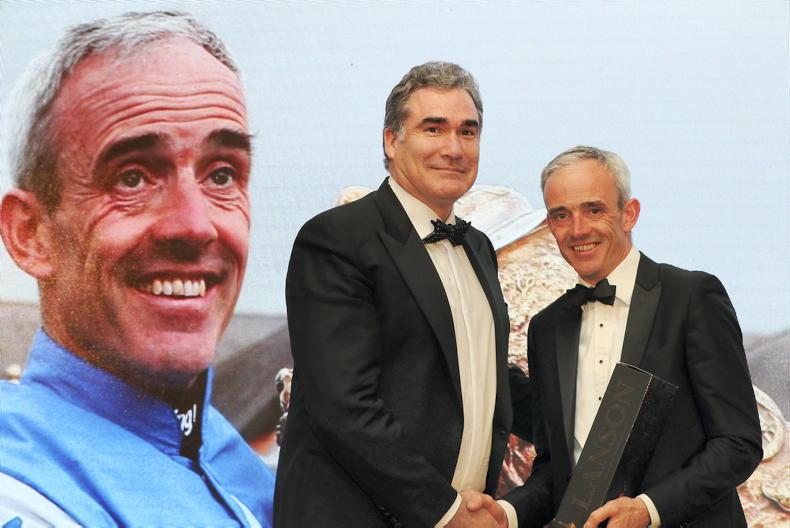

 This is a subscriber-only article
This is a subscriber-only article
 It looks like you're browsing in private mode
It looks like you're browsing in private mode




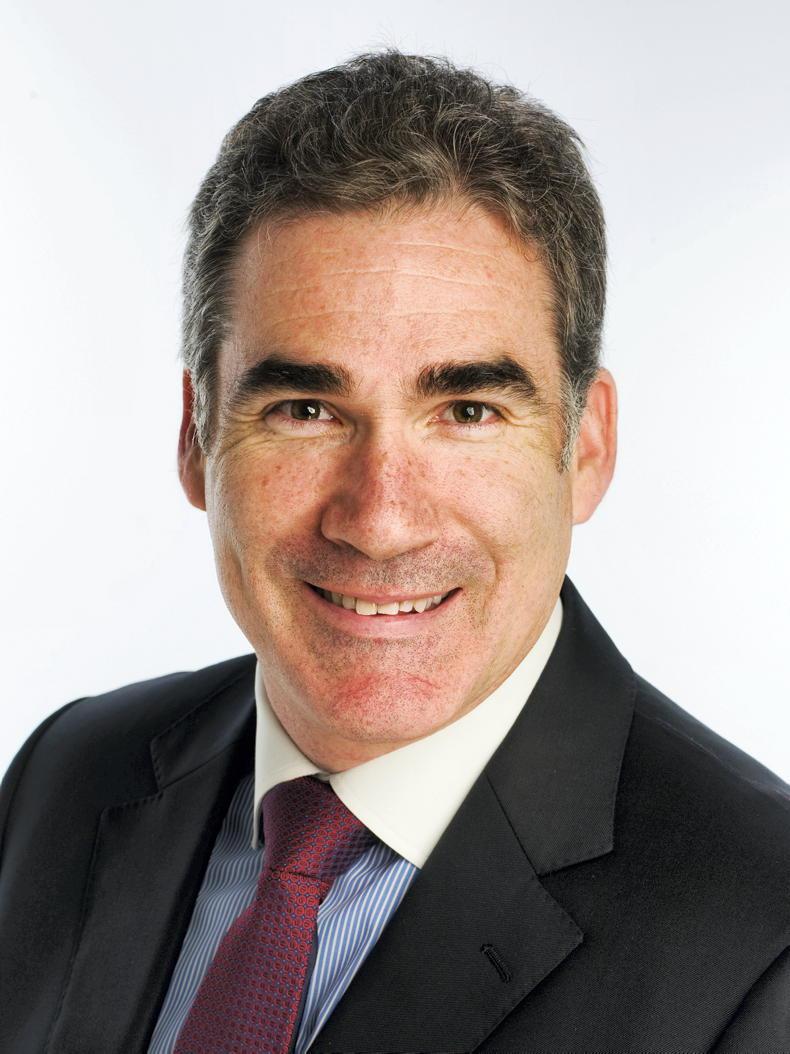
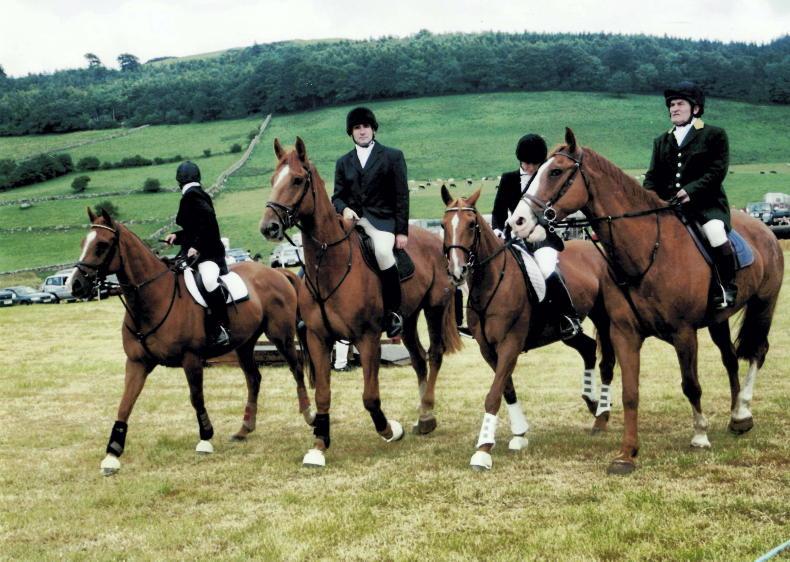
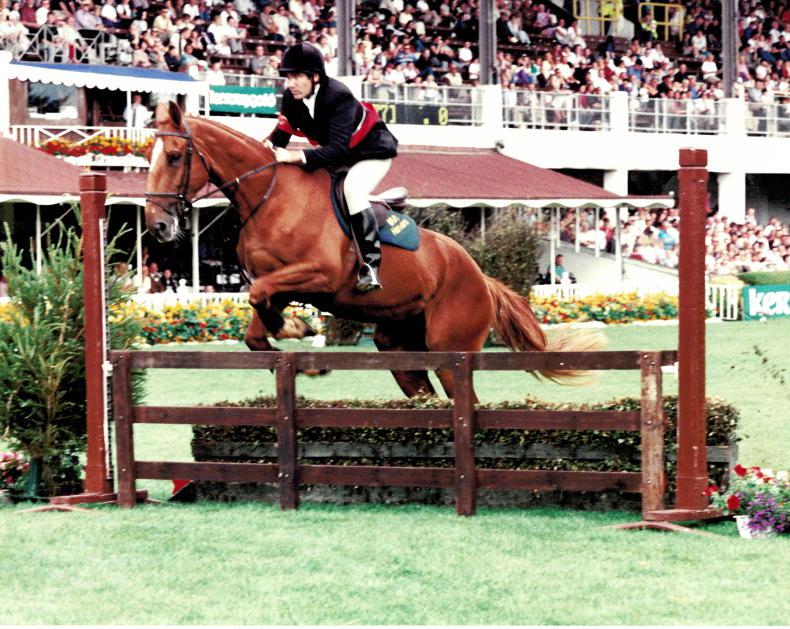
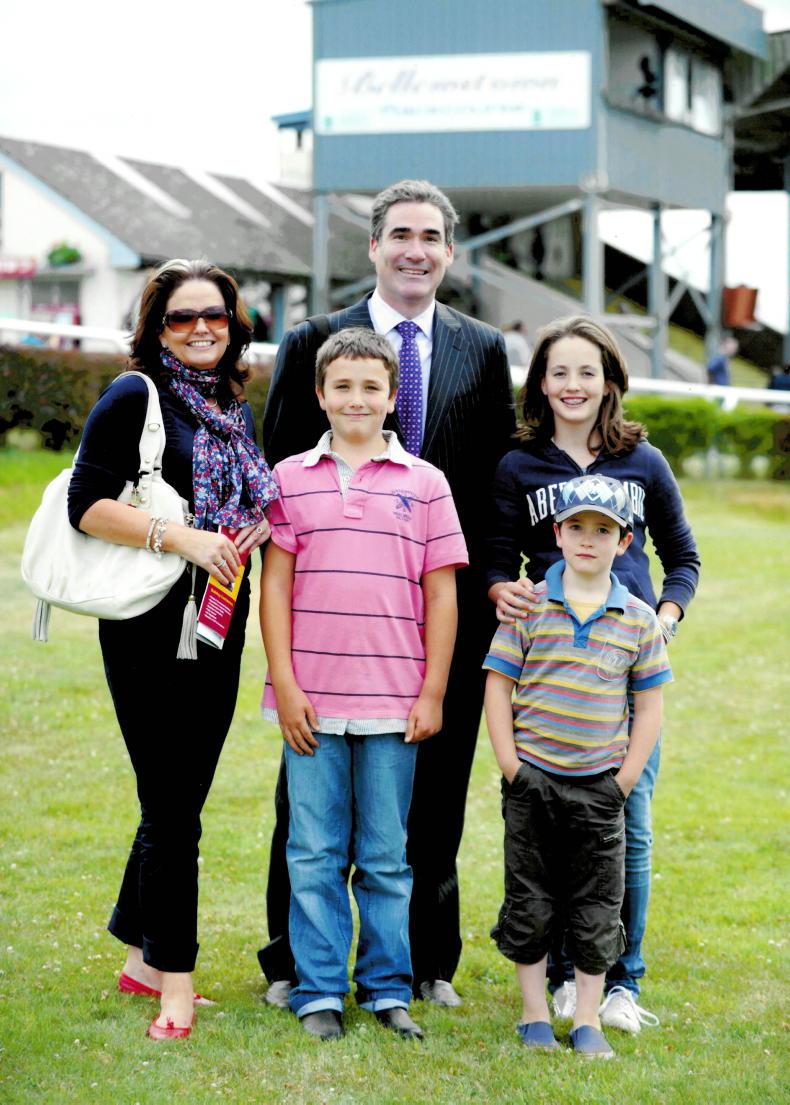
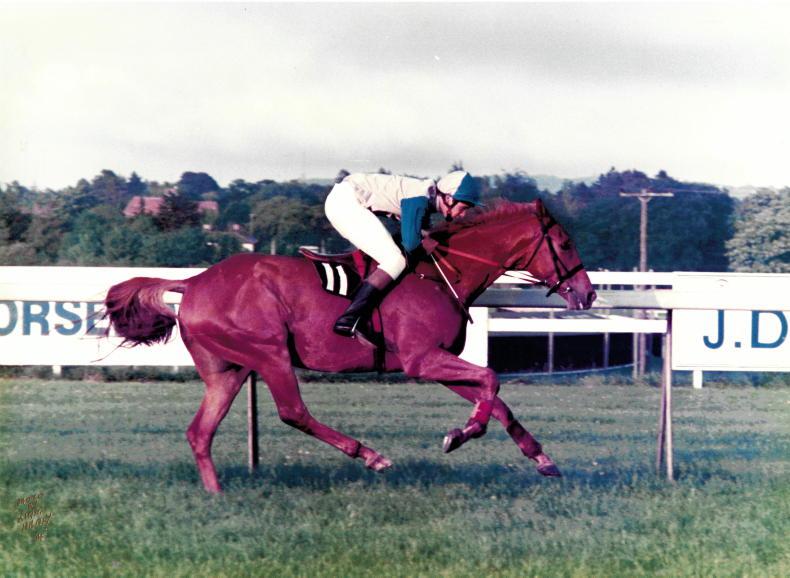

SHARING OPTIONS: